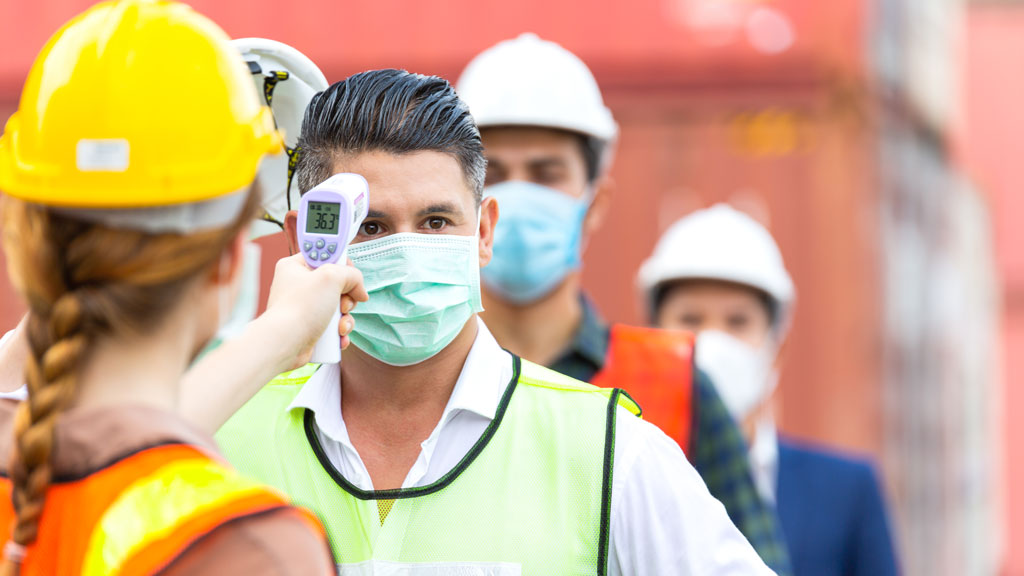It has been over a year since the coronavirus reared its ugly head in Canada.
Judging from the uneven success of combatting the spread of the disease in many jurisdictions here and in the rest of the world, and considering the infrequency of pandemics, one could suggest it is impractical or perhaps even impossible to prepare for them.
Not so, say occupational health and safety (OHS) and construction safety professionals in British Columbia.
“Yes, you can prepare, and you should,” said Melanie Gorman Ng, health and exposure scientist at the BC Construction Safety Alliance (BCCSA). “We’ve known for years about the threat of pandemics and we’ve had several of them this century to learn from, such as the H1N1 flu in 2009, SARS (2002-04) and the Spanish Flu in 1918.”
“The first step is ‘know thine enemy,’” added Hugh Davies, associate professor in the University of British Columbia’s School of Population and Public Health. “In any emergency, know where the threats are likely to come from, make a plan and practice it. And having an organization like the BCCSA certainly helps. It has the resources that employers need.”
According to provincial and federal legislation, all employers must prepare for emergencies, said Erin Linde, director of the BCCSA’s health and safety services.
“Employers need to inform their staff about emergency preparation guidelines and practice drills,” said Linde. “It’s the employer’s responsibility.”
History can also help companies to prepare.
“Some large construction employers, such as Ledcor, had an H1N1 program in place,” she said. “They already had a template to work from.”
Barry McCarty, senior manager of health, safety and environment at Ledcor Group, said once you have a basic understanding of the nature of an OHS threat, such as a pandemic, you can plan for anything.
“You don’t need to know everything about a possible infectious disease in order to prepare for it, because the preparation remains the same,” said McCarty. “The level of detail in the preparation plans depends on the nature of the disease and how much is known about treating it.”
Because of its knowledge and experience with occupational hygiene hazards, said McCarty, the construction industry is “uniquely qualified to respond to the protocols established by public health authorities and implement and adhere to procedures that keep workers safe.
“We’re used to changing quickly and adjusting on the fly,” he said. “Because of the nature of construction work, the industry is also good at setting procedures and following them.”
Ledcor already had plans in place to protect its workers in case of another outbreak of the H1N1 virus.
“We put those plans into action right away almost immediately and updated them for the requirements of COVID-19,” said McCarty. “We engaged occupational hygienist Robin Van Driel, of VOHS Consulting Group, who kept up on the information being generated on COVID-19 and helped us ensure that our protocols and procedures were science-based and framed in accordance with OHS regulatory requirements. Having the H1N1 plan and procedures in place and making COVID-19 adjustments meant that we were not stuck, like some others, trying to figure out where to begin.”
The B.C. construction industry’s COVID-19 preparations went into higher gear on March 20, 2020, when a number of larger employers met to discuss the development and standardization of procedures to protect workers on all construction sites.
“It was during this meeting that I realized that BCCSA was in the perfect position to distribute the procedures the group had developed to all employers in B.C. and, as it turned out, to share those procedures with employers and construction safety associations across Canada,” said McCarty.
A few days later, the Vancouver Regional Construction Association (VRCA) arranged for COVID-19 procedures developed by Ledcor and some other large contractors to be shared with the rest of the industry.
“VRCA played an important role in hosting additional forums and sharing information between their members and other regional construction associations, as well as the Canadian Construction Association,” said McCarty.
Mike McKenna, BCCSA executive director, said logistics are an essential part of planning for COVID-19 or any other OHS emergency.
“There needs to be a supply chain of information in place,” said McKenna. “It enabled the construction industry and BCCSA to act as one. The alliance acted as a curator of information. We gathered it, added to it in some cases and then sent it out to the rest of the construction industry.”











Recent Comments